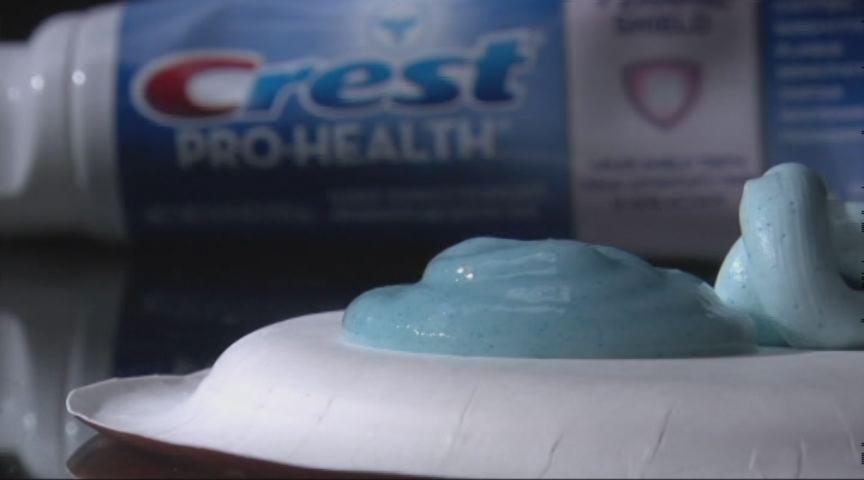St. Petersburg, Florida -- Microbeads might make toothpaste look more attractive, but they are causing some dental issues for consumers, and now they are being removed from Crest products.
Microbeads are made from polyethylene, a kind of plastic, that can be found in everything from children's toys to bulletproof vests. More recently microbeads in soaps and body products made headlines, for damaging ecosystems after washing down the drain.
Procter and Gamble, the company that makes Crest toothpaste, issued a statement saying microbeads are approved by the American Dental Association. But it plans to phase out the small plastic beads in its products by next spring and completely eliminate them by 2016.
For St. Pete dentist Dr. Lawrence Klein, a recent patient's good brushing habits ended with a blue microbead, lodged in a part of her gum, in two places.
Klein says the microbeads give toothpaste color and texture, but what is their purpose? To get you to buy toothpaste.
"The theory is, if they're decorative, they will be more appealing to a patient and will brush longer. The problem, is they can get stuck in the gum tissue around each tooth, and cause gum irritation, potentially a loss of a tooth."
Despite the consequences, Klein says the odds of serious dental damage is slim, and throwing out your toothpaste isn't necessary.
"If you use it just be very wary of it, the chances are pretty small it happens, but it does happen."


